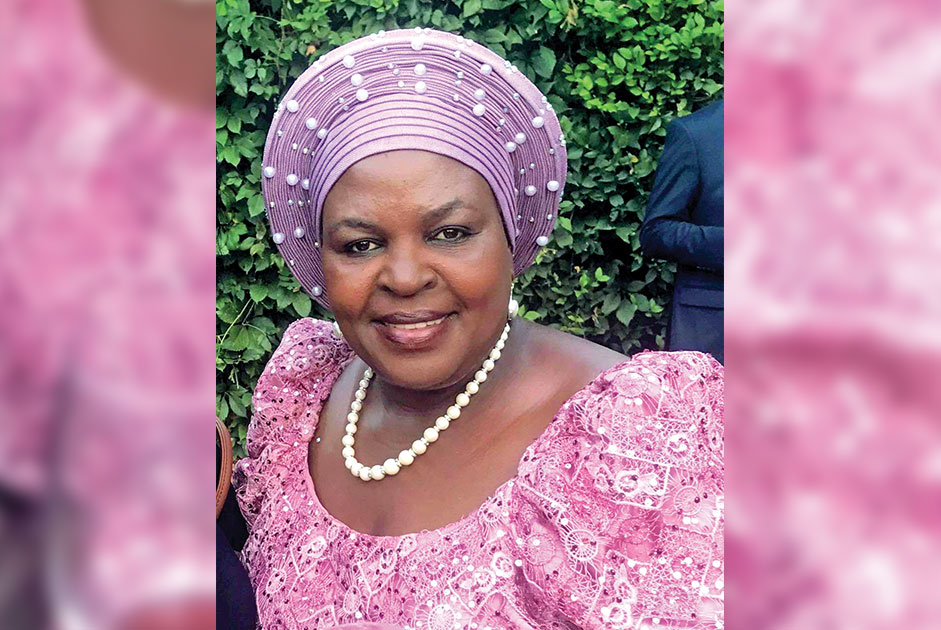When Purity Ruchugo immigrated to the United States in 1986, she did not know much about American history or culture. Born and raised in Kenya, she lived in a loving family on a farm with a mother, Lydiah Waithanji, who set an example of a life of giving back, reaching out, and caring for her community. At the end of the workday on the farm, Purity’s mother would pay the workers for a hard day’s work in the fields and then send each one home with enough food to make dinner that night for their families, knowing that the market would be closed by the time they finished working. She was taught to see the needs of people and to bring others along with her to meet those needs. She arrived in America with a background of service to her community, especially to women, that continues today.

One of Purity’s favorite teachings from her mother and grandmother is that women can handle any challenge if they “can find their center.” She explained, “A woman’s center is like a gourd. A gourd with a stable base may sway in the wind but not fall over. A gourd with a pointed base will never stand tall and will always fall over in life’s hurricanes.” Purity lives a centered life and has taught many young women to “find their center.” Moving to the Winston-Salem area from Charleston, Purity opened a daycare center, after having a vision of children playing in a backyard, and mentored many young mothers through the difficulties of raising a child while going to school.

She urged these young women to stay in school, believe in themselves, and helped them realize their self-worth, all while raising her own family and running a business. She set a clear example of what a mother should be and how a strong woman could always find her center to safely weather any storm.
Purity expanded her service and her voice after one of her many visits to her homeland of Kenya, where she visited a market and met a woman from a nearby village who was struggling to sell her handmade goods. Purity recognized this woman’s desperation and tried to help this stranger. She visited the woman’s village, bought goods from all the villagers that filled two zip lock bags, returned home, and started Sister2Sister International Outreach Ministry Inc. in 2010. In 2011 she opened Umoja Craft shop. She had no plan, just the faith and belief that she should help another woman. “The struggles of one woman are the struggles of all women.” Purity lived by this belief and created a non-profit organization to help women here and abroad to realize their talents and abilities for entrepreneurship and freedom from self-doubt. With two zip lock bags full of crafts and jewelry, Purity opened Umoja African Crafts, a fair-trade gift shop located on Trade Street in downtown Winston-Salem. Proceeds from the shop help feed 100 disadvantaged children every day at Muthithi Primary School in Muranga, Kenya. Opening the shop took a leap of faith from Purity and from the owners of the property.

The owners saw the value in the purpose of the shop and arranged for easier rental payments. Now the shop sells more than jewelry (try clothing, bags, and shoes) and has crafts from female artisans from several villages in Kenya. Emoja allows women to live their purpose, earn a living to support their families, and know that they are strong, independent, and worthy. Purity states, “It’s God’s doing.” Sister2Sister International also supports the construction of a children’s home and school in Ngong, Kenya, where an estimated 2,000 children are homeless and living in the streets. They are also planning a women’s shelter for victims of domestic violence.

Purity feels that women struggle with the same issues whether they live in Kenya or live in the US. She says that women in Kenya are surprised to find that American women also suffer from domestic violence, hunger, and poverty. “You can’t raise yourself up by your bootstraps if you don’t have boots,” is a saying from Purity’s mother that applies to women in any country.
Purity’s’ call to action for our Triad community is to prepare a meal and share it. Do this to meet the needs of women no matter their race, their home or “tribe” or their age. “Many people worldwide wake up thinking about how to put food on the table, not what race they are.” Ignore the labels and meet the needs. An African proverb that she lives by states, “If you want to go fast, go alone. If you want to go far, go together.” A pure message from Purity that we need one another for the better good of our communities!
To learn more about Purity’s community service, visit her website:
https://sistersinternationalwomen.org/ or visit Umoja African Crafts, 535 N. Trade St.



















